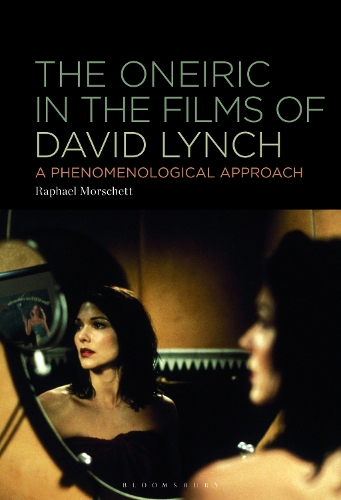
The Oneiric in the Films of David Lynch: A Phenomenological Approach
(Paperback)
Available Formats
Publishing Details
The Oneiric in the Films of David Lynch: A Phenomenological Approach
By (Author) Raphael Morschett
Bloomsbury Publishing USA
Bloomsbury Publishing USA
26th March 2026
United States
Classifications
Professional and Scholarly
Non Fiction
Film history, theory or criticism
Phenomenology and Existentialism
Dreams and their interpretation
791.43023309
Physical Properties
Paperback
280
Width 152mm, Height 229mm
Description
The Oneiric in the Films of David Lynch is the first systematic book-length study to explore the nature and function of dreams in David Lynch's different phases and audio-visual formats.
There is hardly a contemporary film director whose name is as closely linked to the dream(-like) as that of David Lynch. Both popular and academic discourse frequently identify Lynchs films by their dreamlike qualities. However, in the existing literature on Lynch, these qualities tend to remain underspecified in terms of their experiential dimension.
Departing from an interest in the phenomenon of dream experience, this is the first systematic book-length study exploring the nature and function of the oneiric in the directors different phases and audio-visual formats. It shows that, over the course of 50 years, Lynch has developed a cinematic aesthetics of the oneiric an ensemble of four dream-related dimensions that unfolds its full potential in the dynamic interplay between sensory address and reflective medialization. On the one hand, the Lynchian oneiric presents a markedly sensory-perceptual mode of experience both characters and viewers are challenged in their perceptual patterns, while at the same time being immersed in the material dream scenario. On the other hand, the Lynchian oneiric provides a mode of both psychological and medial reflection. Not only the characters, but the films themselves are inclined to turn back on themselves in a dream, exploring the preconditions, possibilities, and limitations of their own existence and ability to know the world. The oneiric in Lynchs films is thus of phenomenological, media-theoretical, and philosophical interest.
Reviews
[This] book is [a] sharp and sophisticated guide to ways of thinking about the cinema as a dream. Recommended. Advanced undergraduates through faculty. * CHOICE *
More than any other living artist, David Lynch has deeply impacted contemporary perceptions of dreaming. The arrival of a wonderful new book, The Oneiric in the Films of David Lynch, helps to explain why Lynchian is now such a widely-used synonym for dreamy bizarreness. Raphael Morschett traces the dream theme across the entire arc of Lynchs career, not simply to provide a chronological catalog but to illuminate the remarkable unfolding of the many complex roles that dreaming plays in his films. This splendid book is a gift to anyone with an interest in Lynchs work and the dynamic relationship between dreaming and artistic creativity. * Kelly Bulkeley, Director, the Sleep and Dream Database, USA *
In addition to a trademark medial atmosphere intertwined with a surreal approach to storytelling, the cinema of David Lynch is renowned for transforming the crude awakened reality into a vivid and unforgettable dream. Thought provoking and rich, The Oneiric in the Films of David Lynch is a compelling and serious attempt to uncover, analyze, and explain the theoretical grounds of this Lynchian phenomenon. As the first of its kind, the book illuminates the darkness of Lynchs dreamworld. It brilliantly navigates between theoretical observations and medial self-reflective insights and tackles both philosophical and psychological challenges with utmost success. The book reintroduces the Lynchian cinematic universe in a unique and elucidating wayjoyfully forcing us to rethink and reconsider Lynch anew. * Shai Biderman, Assistant professor, Beit Berl College and Tel Aviv University, Israel *
Author Bio
Raphael Morschett holds a PhD in film studies from Saarland University, Germany, where he was part of the interdisciplinary research training group European Dream-Cultures. He is an independent scholar with a background in linguistics and philosophy, and is an aspiring psychologist. He gained work and research experience in the UK, Italy, and the USA and has previously published and lectured on David Lynch, film theory, and phonology.
